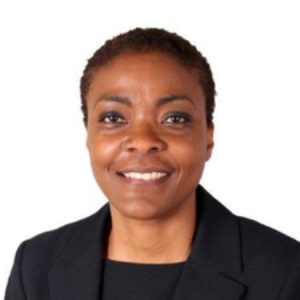“Gurry questioned whether the growth and sustainability of artificial intelligence (AI) technology will lead to the need for two copyright systems—one to address human creation and one to address machine creation.”
 Earlier this month, the U.S. Copyright Office and the World Intellectual Property Organization (WIPO) held a joint event titled, “Copyright in the Age of Artificial Intelligence” (AI) at the Library of Congress in Washington, DC. The event explored how global copyright law and intellectual property law, as well as broader policy, may currently address AI technology, and included dialogue about changes that may be needed. Panelists also shared how AI is being utilized now and what future technology deployment and innovation may look like.
Earlier this month, the U.S. Copyright Office and the World Intellectual Property Organization (WIPO) held a joint event titled, “Copyright in the Age of Artificial Intelligence” (AI) at the Library of Congress in Washington, DC. The event explored how global copyright law and intellectual property law, as well as broader policy, may currently address AI technology, and included dialogue about changes that may be needed. Panelists also shared how AI is being utilized now and what future technology deployment and innovation may look like.
The event was part of a series of conversations organized by the U.S, Copyright Office and WIPO both in the United States and Europe, with the next conversation scheduled for May 11 and 12 in Geneva, Switzerland. The summit illustrated that AI presents unique opportunities for innovation, assuming intellectual property rights are respected, but questions remain in several areas, including whether machine learning is producing “original” work and whether the product of such software is inherently reproductive, derivative or the result of a system or process devoid of human action.
Globally, there are governments, businesses, academic centers and organizations, including WIPO, organizing discussion and developing strategy papers for stakeholder input. For example, the European Union commissioned a study on AI and IPR laws and WIPO issued a discussion paper seeking comments globally. Throughout the summit, it was agreed that intellectual property rights are complex national rights with differences in governmental approaches, but the need exists to assess whether current IP laws and regulations provide a framework to support and protect innovation in the marketplace.
Harmonization of laws and regulations governing AI might be a future goal for some stakeholders, but, more immediate changes may be needed to IP frameworks to properly protect and enhance IP rights. With this summit’s central focus on copyright protection, there were global questions about copyright protection for algorithms and other works created by AI technology. Central to the dialogue was who owns the AI content and technology in addition to whom controls and monitors the technology. Further to the dialogue, questions remain about the use of licensure for data feeds and content created. While government’s and organizations review AI technology, the private sector is moving forward exploring and building opportunities for the use of AI technology to help address challenging issues.
US, UK and WIPO Perspectives on AI

Francis Gurry
The current head of WIPO, Frances Gurry, stated in his keynote with excitement that “artificial intelligence is being used across numerous industries” and noted how “machine AI is being used in a clinical trial” in the United Kingdom. Gurry noted that intellectual property rights, including copyright frameworks, sometimes do not get the attention and focus that cybersecurity, privacy and data integrity get when discussing AI. Similar to governments and other entities, WIPO has developed a discussion paper about AI on which they are seeking comments from stakeholders; the next steps from this paper will be part of the May conversation in Geneva. With the speed of technology and innovation, Gurry emphasized the need for governments to respond and cited how WIPO wants to share their experiences and information to help inform national decisions. Further, Gurry questioned whether the growth and sustainability of AI technology will lead to the need for two copyright systems—one to address human creation and one to address machine creation.

Maria Strong
WIPO is already utilizing AI processes as part of their work processes. At WIPO’s Advanced Technology Applications Center (ATAC), staff are researching AI tools to enhance their function and processes, which they are sharing with IP offices globally. One example is WIPO’s automatic patent classification tool, which assists patent filers and examiners in intellectual property offices to automatically categorize patent applications into technical units according to their international patent classification class, subclass, main group or subgroup. Further, WIPO is piloting a new digital system where they will use AI to create automatically translated, speech-to-text transcripts of their meetings in six different languages. Additionally, WIPO is exploring using AI for automatic classification of goods and services for trademark applications and using AI processes to help run their help desk services. Finally, WIPO indicated that they are working on tools and processes using AI to increase accessibility for all users.
Acting Register of Copyrights and Director of the U.S. Copyright Office, Maria Strong, noted the Office’s interest in having these global conversations to discuss AI with stakeholders, governments and organizations including WIPO. Strong noted the evolution of U.S copyright law since 1870 and amendments over the years to address new technology. She added that AI means different things to different people and while the Copyright Office continues to research the issue, at present, it is not utilizing AI in their current work processes.

Ros Lynch
Dr. Ros Lynch, Director of Copyright and IP Enforcement of the United Kingdom Intellectual Property Office (UKIPO), discussed how technology presents promise and opportunities for consumers and businesses, assuming intellectual property rights are respected. Lynch noted that the UK is one of three countries that has a provision in their law from 1987 focused on copyright protection of computer generated content. This UK provision has not been the source of litigation recently, but examination of the provision continues, and it may need to be updated to address the developments in AI technology.
In speaking about patents and trademarks, Andrei Iancu, the Under Secretary of Commerce for Intellectual Property and Director of the United States Patent and Trademark Office (USPTO), noted how AI ‘presents challenges for IP’ especially when determining when rights are conferred. At present, the USPTO is reviewing comments from stakeholders in response to the agency’s request for comments on innovation and IP. Iancu noted that the agency will be issuing a report in response to the comments in the next several months.
Private Industry Weighs In
The private industry speakers who participated explained how AI technology might present opportunities and support for individuals with various special needs. Such innovations include a wheelchair that could be moved and operated using facial expressions and using deep learning processes to help individuals who may not be able to communicate using voice. Further, AI technology may be utilized to help individuals in their daily activities and increase capacity for social interaction.
AI presents real opportunities to help solve difficult issues. However, industry panelists noted how AI also presents challenges including bias and mistakes that may be generated by machine content. Human engagement and review of machine processes will still be needed to help prevent harm and data integrity, including errors that may be caused by facial recognition and data algorithms.
What’s to Come
Overall, the program helped to illustrate the promise and opportunities stemming from AI technology. Review of intellectual property frameworks globally will need to continue to ensure that innovation is protected and allowed to flourish. Global harmonization of laws and regulations governing AI is a lofty goal, and each government might need to start with changes to their current IP frameworks. Industry will continue research and innovation while governments continue to assess feedback from their stakeholders. Additionally, changes to leadership at WIPO, global elections, including in the United States, and changes in the EU could alter the trajectory of this issue.

![[IPWatchdog Logo]](https://ipwatchdog.com/wp-content/themes/IPWatchdog%20-%202023/assets/images/temp/logo-small@2x.png)

![[Advertisement]](https://ipwatchdog.com/wp-content/uploads/2024/04/UnitedLex-May-2-2024-sidebar-700x500-1.jpg)
![[Advertisement]](https://ipwatchdog.com/wp-content/uploads/2024/04/Artificial-Intelligence-2024-REPLAY-sidebar-700x500-corrected.jpg)
![[Advertisement]](https://ipwatchdog.com/wp-content/uploads/2024/04/Patent-Litigation-Masters-2024-sidebar-700x500-1.jpg)

![[Advertisement]](https://ipwatchdog.com/wp-content/uploads/2021/12/WEBINAR-336-x-280-px.png)
![[Advertisement]](https://ipwatchdog.com/wp-content/uploads/2021/12/2021-Patent-Practice-on-Demand-recorded-Feb-2021-336-x-280.jpg)
![[Advertisement]](https://ipwatchdog.com/wp-content/uploads/2021/12/Ad-4-The-Invent-Patent-System™.png)






Join the Discussion
3 comments so far.
Himanshu
April 21, 2020 03:03 amGreat Article, Very informative and helpful information about the Age of AI
I’ve read about IBM’s Watson in many articles but none of them gave me as satisfactory description as this did. Learning more with quality over quantity sounds fascinating. Further one can get detailed information about the same by visiting the website http://www.appknock.co
Anon
February 17, 2020 04:59 pmI do not see any addressing of the single most important question:
If AI can be a devisor (see recent UK law), then what protections can and should inure?
Joachim,
This latest development comes AFTER the article you note — times have moved on from that earlier writing.
Joachim Martillo
February 17, 2020 12:45 pmComputer generation of music that seems to be creative has been around for a long time. Such music is not really creative but is derived from inputs analytically via a type of symbolic computation.
Undiscovered Bach? No, a Computer Wrote It